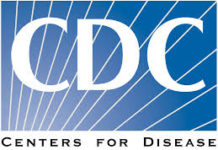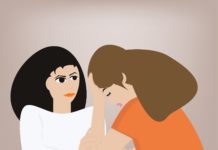Antidepressants Have No Effect On Bipolar Depression
In a review of 68 articles published between 2005 and 2011, Israeli researchers found that most well-controlled studies failed to show a significant effect of...
Suicide Rates Rise While Antidepressant Use Climbs
Multiple media sources are reporting on new data from the CDC revealing a substantial increase in the suicide rate in the United States between 1999...
Minimal Empirical Support for Antidepressant Treatment in Young People
Researchers from Australia reviewed the existing literature for good-quality evidence of effective prevention and treatment of depression in young people. Prevention research was dominated...
Antidepressant Made Germanwings Co-pilot “Panic”
Germanwings pilot Andreas Lubitz wrote, in a desperate, final email to his psychiatrist two weeks before slamming his A320 jet into the French Alps...
Why More American Teens Than Ever Suffer From Severe Anxiety
In this piece for The New York Times, Benoit Denizet-Lewis explores the social, cultural, and economic factors that have contributed to the significant rise in...
Training Health Workers in Therapy Leads to Improvements and Less Medication Use
A Nigerian study finds that more than three-quarters of patients improved, even when only 13% were prescribed medication.
Former Duke Psychiatry Chair Calls for BMJ to Retract Article about Antidepressant Black Box...
A former Duke University psychiatry chair is calling for a retraction of a study suggesting that the FDA's black-box warnings about increased suicidality in youth taking SSRIs led to increases in adolescent suicide attempts.
Jury Rejects Zoloft Defense
Former CA policeman Anthony Orban now faces a possible life sentence following the jury's rejection of his argument that a Zoloft-driven psychotic episode had...
A Case Against Antidepressants
From Newsroom: University of Auckland researchers make a case against the chemical imbalance theory of mental illness, arguing that biological explanations and treatments for emotional...
“If Antidepressants Don’t Work Well, Why Are They So Popular?”
“The true balance of risk versus benefit for people taking these kinds of antidepressants will probably only emerge when independent researchers have access to...
German Psychologists Declare “the Drugs Don’t Work”
Jürgen Margraf and Silvia Schneider, both well-known psychologists at the University of Bochum in Germany, claim that psychotropic drugs are no solution to mental...
New Research on Insomnia & Depression
The New York Times reports on new research from multiple sources that finds focused attention on insomnia is proving to be a "cheap, relatively...
“The Drugs Don’t Work: a Modern Medical Scandal”
Ben Goldacre reflects on his having been mislead as a psychiatrist in his forthcoming book Bad Pharma (excerpted here in the U.K. newspaper The Guardian), and...
Trial Over Suicide and Texting Lays Bare Pain of 2 Teenagers
From The New York Times: Michelle Carter, a 20-year-old woman, is currently being tried for urging her boyfriend to kill himself via text message. According to...
High Doses of Antidepressants Increase Self-Harm in Children, Young Adults
A comprehensive meta-analysis of randomized trial data by researchers from the Harvard School of Public Health finds that children and young adults who start...
SSRI Exposure in Pregnancy Alters Fetal Neurodevelopment
Alterations in gray matter and white matter development found in infants of mothers taking SSRI antidepressants during pregnancy.
Are Drug Companies Grooming New Customers in the Womb?
From The Baltimore Sun: Over time, studies have shown that antidepressants during pregnancy are linked with congenital defects as well as increased incidence of depression...
Antidepressant Effects Thwarted by Stressful Environments
A new study, about to be published in the journal Brain, Behavior, and Immunity, investigates the role a stressful environment plays in antidepressant effectiveness....
Antidepressants Are Not More Effective for Severe Depression, Study Finds
A new study, published in Acta Psychiatrica Scandinavica, found that antidepressant efficacy was not dependent on severity.
Prenatal Exposure to Psychotropic Medication Linked to Long Term Cognitive Impairment
School aged children exposed prenatally to psychotropic medication show poorer outcomes in cognitive ability.
The Simple Treatment That Beats Antidepressants
From PsyBlog: Research suggests that taking a brisk walk three times a week may be more effective in alleviating depression than antidepressants. Almost two-thirds of study...
Emotional Illiteracy in “The Medication Generation”
Katharine Sharpe, author of "Coming of Age on Zoloft," writes for the Wall Street Journal about the particular problems of young people learning about...
Turmeric as Effective as Prozac, With no Side-Effects
A randomized, controlled study by the Department of Pharmacology of Government Medical College in Bhavnagar, Gujarat, India found that in a study of 60...
5,012 Englishwomen Poisoned Last Year by Benzos, 8,501 by SSRIs
Addiction Today reports "Attention on illicit drugs has deflected focus from the gigantic scale of harms by legal, prescribed drugs. We give you the...
Flexible Treatment Planning Improves Depression Outcomes in Youth
Researchers explore the effects of augmented treatment at various points in interpersonal psychotherapy for adolescents diagnosed with depression, highlighting previously unidentified critical decision points (i.e., relatively early in the treatment sequence).






















